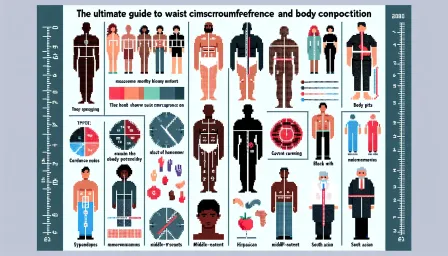The Role of Social Support in Long-Term Weight Loss Maintenance

Discover the crucial role social support plays in long-term weight loss maintenance. Learn how social networks can help achieve and maintain weight loss goals.
Maintaining weight loss over the long term is a challenge many individuals face. While diet and exercise are fundamental components, another critical factor is often overlooked: social support. Research indicates that a strong social support network can significantly influence an individual’s ability to achieve and sustain their weight loss goals. This article explores the role of social support in long-term weight loss maintenance, shedding light on how social networks can provide the necessary encouragement, motivation, and accountability.
Understanding Weight Loss Maintenance
Weight loss maintenance refers to the ability to sustain a reduced body weight over a prolonged period, typically defined as one year or longer. This process is distinct from initial weight loss, as it requires continued behavioral changes and coping strategies to prevent weight regain. Factors influencing weight loss maintenance include metabolic adaptations, psychological resilience, and lifestyle adjustments.
The Importance of Social Support
Social support encompasses various forms of assistance provided by friends, family, communities, and even social media networks. This support can be emotional, informational, or practical, all of which play a vital role in helping individuals adhere to their weight loss maintenance plans.
Emotional Support
Emotional support involves feelings of empathy, care, and understanding shared by close relationships. During challenging times, having someone to talk to can provide relief and stress reduction, which is crucial for staying motivated and positive.
Informational Support
Informational support includes sharing knowledge, advice, and feedback. Access to reliable information about nutrition, exercise, and strategies for overcoming obstacles can enhance an individual’s ability to make informed decisions and stay on track with their weight loss goals.
Practical Support
Practical support involves tangible assistance, such as helping with meal preparation, providing transportation to the gym, or participating in physical activities together. This type of support can alleviate some of the logistical burdens associated with maintaining a healthy lifestyle.
Social Support and Weight Loss Success
Studies have shown that individuals who receive strong social support have higher success rates in maintaining weight loss. A supportive network can offer encouragement during setbacks, celebrate accomplishments, and create a sense of accountability.
Accountability and Motivation
Accountability is a key element in maintaining long-term weight loss. When individuals share their goals and progress with others, they are more likely to stay committed. Supportive friends or groups can provide regular check-ins, set collective goals, and motivate each other through shared experiences.
Shared Experiences and Community
Joining weight loss groups or online communities can facilitate connections with like-minded individuals. These communities often provide a platform for sharing challenges, successes, and tips, fostering a sense of belonging and understanding. The shared experience helps individuals realize they are not alone in their journey.
Strategies for Building a Support System
Building a support system does not always happen automatically; it often requires intentional efforts. Here are some strategies to develop and maintain a strong social support network:
Communicate Your Goals
Clearly express your weight loss goals to friends and family. Let them know how they can support you, whether through companionship in physical activities, sharing healthy recipes, or offering encouragement.
Join Support Groups
Consider joining support groups or fitness classes, both in-person and online. Organizations like Weight Watchers and other local community programs offer structured support systems that promote accountability and knowledge sharing.
Engage in Social Media
Social media platforms can be a valuable resource for finding and connecting with support communities. Follow accounts that promote healthy lifestyles, participate in groups dedicated to weight loss maintenance, and make use of apps that track progress and offer virtual support.
Enlist a Workout Buddy
Having a workout buddy can make physical activity more enjoyable and consistent. Partnering with someone who has similar fitness goals can provide mutual motivation and serve as a source of accountability.
Seek Professional Support
In addition to personal networks, professional support from dietitians, therapists, and fitness trainers can provide expert advice and structured guidance. Professionals can help tailor plans to individual needs and offer specialized support.
Overcoming Common Challenges
Despite its benefits, relying on social support for weight loss maintenance can present challenges. Here are some common issues and ways to address them:
Lack of Understanding
Friends or family members might not fully understand the commitment required for long-term weight loss maintenance. Educate them about your journey and the importance of their support. Providing specific examples of how they can help can foster understanding and cooperation.
Negative Influences
Some individuals may inadvertently sabotage your progress by encouraging unhealthy behaviors. Politely but firmly communicate your goals and establish boundaries to avoid situations that could jeopardize your success.
Maintaining Motivation
Even with strong social support, maintaining motivation over time can be challenging. Regularly revisit your goals, celebrate small victories, and remind yourself of the progress you’ve made. Keeping a journal or diary can also help track accomplishments and reflect on challenges.
Conclusion
Social support plays a critical role in long-term weight loss maintenance. A strong support network can provide the emotional, informational, and practical assistance needed to overcome challenges and stay committed to healthy lifestyle changes. By engaging with supportive friends, family, and communities, individuals can enhance their likelihood of sustaining their weight loss achievements. Therefore, fostering and maintaining a robust social support system should be considered a vital component in the journey towards long-term weight loss success.



























